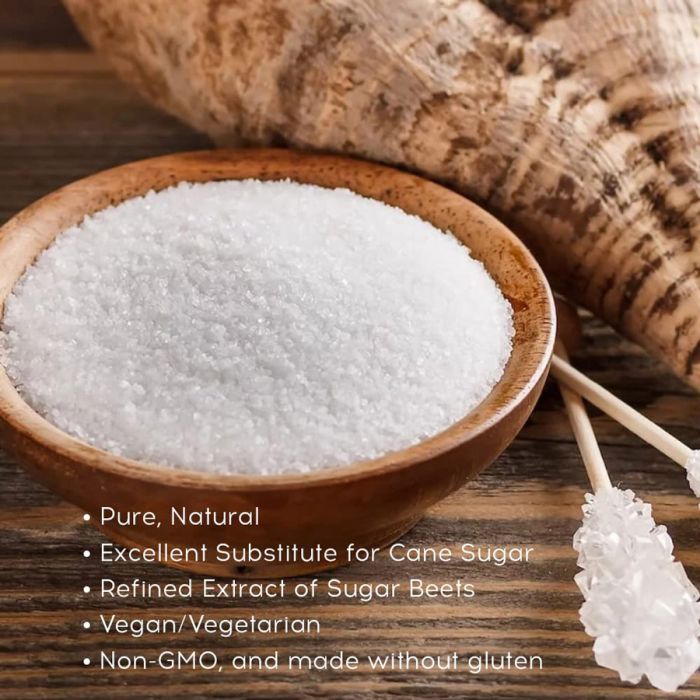Exploring the Distinctions in Usages and Advantages Between Beet Sugar Vs Cane Sugar
In the culinary globe, the option between beet sugar and cane sugar is not just regarding sweetness yet involves a nuanced factor to consider of taste, application, and influence. While both sugars originate from different plants, each goes through special production procedures that discreetly affect their qualities and viability for numerous recipes. As chefs and customers increasingly prioritize both the environmental and flavor profiles of their ingredients, comprehending these distinctions ends up being crucial. This expedition supplies understanding right into exactly how each sugar kind can best improve culinary creations.
Origins and Production Procedures of Beet and Cane Sugar

Cane sugar, on the other hand, originates from the sugarcane plant, a tropical yard belonging to Southeast Asia now cultivated in exotic zones worldwide. The production of cane sugar starts with the harvesting of cane stalks, which are squashed to launch the juice. This juice is then boiled to concentrate it, after which it is spun in centrifuges to produce raw sugar crystals. These crystals are further fine-tuned to produce the white sugar commonly readily available in shops.

Nutritional Material and Health And Wellness Considerations

When contrasting the dietary material of beet sugar and cane sugar, it comes to be noticeable that both kinds basically supply the exact same calorie worths, with around 16 calories per tsp and no substantial nutrient variety. Each is made up nearly completely of sucrose, which is an easy carbohydrate that offers quick power yet does not have vitamins, minerals, or fiber. This resemblance includes their impact on health, specifically worrying blood sugar levels. Both sugars, when consumed in excess, can contribute to elevated blood glucose degrees, a danger factor for diabetic issues and other metabolic problems. Extreme consumption can lead to weight gain and dental issues, as both sugars are similarly cariogenic, promoting tooth degeneration. From a wellness perspective, regulating intake of any type of sort of sugar, whether from beet or cane, is a good idea to stay clear of these potential unfavorable impacts on wellness. Thus, neither holds a distinctive advantage over the other in terms of wellness benefits.
Taste Profiles and Culinary Applications
Regardless of their similar chemical frameworks, beet sugar and cane sugar differ discreetly in flavor, which can influence their usage in various cooking contexts. Walking cane sugar commonly carries a tip of molasses, also in its polished type, providing a warm, caramel-like touch that boosts baked items, coffee, and chocolate-based recipes. On the other hand, beet sugar is identified by its highly refined, neutral taste, making it a versatile sweetener that does look at these guys not change the flavor profiles of dishes.
Ecological Effect and Sustainability
While both beet and cane sugars are obtained from plants, their environmental effects vary considerably due to the distinctive methods of farming and handling required for each. Sugar beet cultivation frequently entails considerable mechanization, which can boost fossil fuel consumption and carbon exhausts.
Moreover, the handling of sugarcane typically generates a considerable quantity of waste, consisting of bagasse, which, although usable as biofuel, often adds to air contamination if melted inefficiently. Sugar beet handling utilizes more of the raw materials, leading to less waste. Both industries face obstacles in lowering their environmental footprints, yet continuous technologies in agricultural methods and waste management are aiming to improve sustainability.
Economic Aspects Affecting the Sugar Market
The financial characteristics of the sugar sector are substantially influenced by international market needs and trade plans. In regions where sugarcane or sugar beet production is subsidized, manufacturers may have a monetary benefit that enables them to provide lower prices on the international market.
Additionally, variations in global need for sugar, affected by dietary patterns and industrial usage in food products, straight influence prices and production degrees. beet sugar vs cane sugar. Weather problems likewise play an essential role, as they can significantly impact plant yields and, consequently, the supply chain. This variability presents a degree you can try these out of financial uncertainty that can bring about financial investment volatility in sugar production fields, affecting decisions from growing to market strategy
Verdict
In final thought, both beet and cane sugar have distinct top qualities that suit different culinary requirements. While cane sugar conveys an abundant taste suitable for enhancing baked goods, beet sugar's nonpartisanship is best for lighter dishes. Nutritional similarities regardless of, their distinctive manufacturing procedures and ecological effects include complexity to the option in between them. Therefore, recognizing these differences helps cooks and consumers make why not find out more informed choices that align with their wellness, culinary, and moral choices.